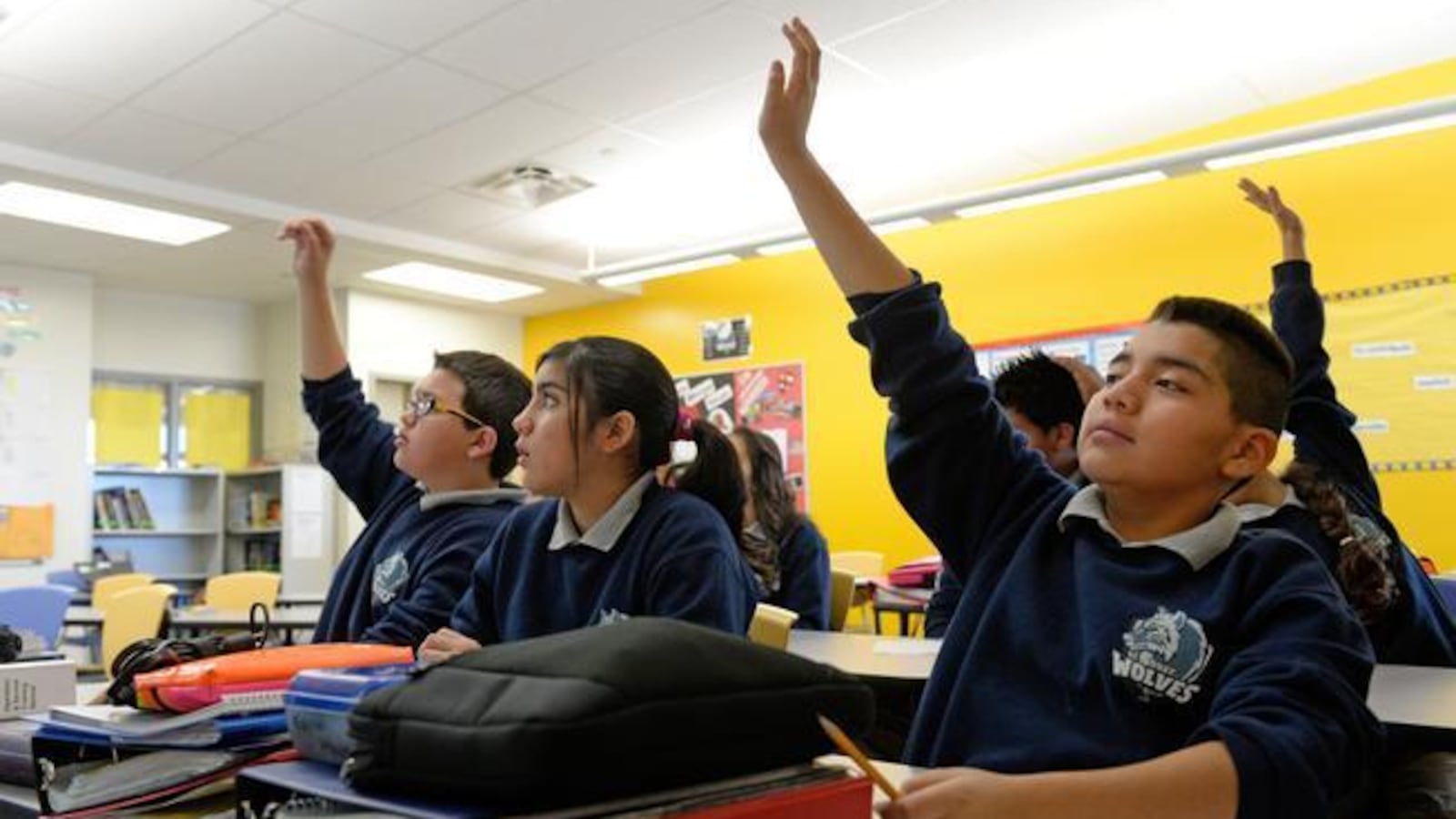The school board for Aurora Public Schools on Tuesday gave district officials approval to continue negotiations with the DSST charter network, but not before raising concerns about the process and emphasizing that this green light doesn’t guarantee final approval later.
Aurora Superintendent Rico Munn earlier this year proposed a plan to bring the high-performing DSST network to Aurora, in a new school serving sixth through 12th graders.
Under Munn’s proposal, APS would pay for up to half of the cost of a new district-owned building and allow DSST to use it if the charter network came up with the rest of the money. After passage last month of a $300 million bond measure that included the district’s share of the project cost, Munn on Tuesday asked the board for input on continuing negotiations and on what he should prioritize.
DSST has said it would assist with fundraising to complete the building, but that it believes the school district should take the lead.
Board members asked questions around fundraising for the second half of the building’s cost, about whether the school would serve students from across the district or from a specified boundary, and whether the timing is right.
Some board members also raised concerns that the process of inviting DSST for the partnership may not have been fair, and cautioned that they didn’t want to make any guarantees to DSST before the network submits an application for a charter in the district.
“A concern I have with this proposal and not the school — because I would love to have a DSST campus here — is how the community was engaged… and also how our charters were engaged,” said board member Dan Jorgensen. “We’re setting up a situation where an outside provider is going to have an opportunity to serve kids, where none of our charters within the district were given that same opportunity.”
Pat Leger, principal of Aurora Academy a charter in its sixth year in the district, said she would have liked the opportunity to have been considered, but mostly felt “offended” because of a recent disagreement with the district about whether her charter could benefit from the district’s bond dollars.
“The part of the process that bothered me the most is he wouldn’t include us in the bond, but he will go out and give money to a charter that he’s never worked with,” Leger said. “That to me feels inappropriate.”
Aurora charter schools are set to get some bond money to improve technology and security, but a district committee found their larger capital requests did not merit inclusion in the bond.
Leger said that she believes Munn’s intentions are good, but that the process hasn’t made it clear why the district believes that need exists at a time when enrollment is down and several other new charter schools were recently approved to open.
“The whole process needs to be looked at,” she said.
Van Schoales, CEO of the nonprofit A-Plus Colorado, while pleased that the district has become more welcoming to charter schools, said his group is also concerned about Aurora’s process.
“You have to have an open, transparent process,” Schoales said. “The fact that the district went back and forth with schools about access to facilities and the bond, it speaks to the fact that there aren’t any clear written rules of engagement.”
Without a process, Schoales said, it could for some people “reinforce the perception that there are backroom deals happening.” Last year, to bring more clarity and transparency to its process, Denver Public Schools adopted a new policy for how it allocates space to district-run and charter schools.
In a letter sent to Munn in July, Bill Kurtz, the charter network’s CEO, expressed a willingness to pursue the plan but outlined a set of criteria the group uses to evaluate potential partnerships. Among the opportunities DSST would be looking for in a deal would be the ability to operate four schools in the district.
Several board members said they would not want to guarantee any future schools without having them go through the district’s application process first. Board member JulieMarie Shepherd wasn’t at the board meeting, but submitted her opinion to the board in writing, expressing the same thought. According to the district’s regular charter school process, applications are accepted each year in March.
The other main concern board members raised was about the timing of opening a new school while enrollment numbers in the district have started dropping. School officials this year were off on their projections by 643 students, requiring the district to adjust the current year’s budget by cutting $3 million.
Two of the five board members at Tuesday’s meeting, Amber Drevon and Barbara Yamrick, suggested the district pause negotiations with DSST while the board works on the budget. Jorgensen requested that district staff look at the financial implications to provide the board more information before a deal reaches a final vote.
Munn told the board that if a deal is reached, a DSST school wouldn’t open for a few years and that by that time, district officials predict enrollment will be increasing again.

